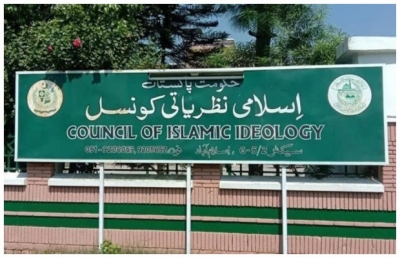By Hamza AmeerIslamabad, Sep 28 : The Transgender Persons (Protection of Rights) Act, 2018, has become a subject of debate in Pakistans Upper House as the matter of declaration of transgenders as a third gender on their national identity cards, along with permissions to have same sex marriages and sex change, has been tabled in the Senate and is being widely discussed on social media platforms.
Many have been advocating in favour of what they call the rights of the transgender community to get their identity as third gender and also to declare sex change and same sex marriages as legal in Pakistan; however, the Council of Islamic Ideology (CII) has declared that there are several provisions in the Act which are not in line with the Islamic Shariah.Thus, the act itself has been rejected by the CII.
“The law might lead to new social problems.There is a need to protect the rights of actual intersex people – which generally means that a person with ambiguous genitalia and also known has hermaphrodite,” read a communique issued by the CII.
The CII has sent its recommendations to the government and has asked for the formation of a committee to review the legislation.It said the committee should comprise religious clerics as well as medical experts.
“All aspects of the matter need to be reviewed to negate ambiguity and an effective law can be formulated on the issue,” read the CII communique.
The CII has also called on the government to incorporate the recommendations it has made in its communique in the Transgender Persons (Protection of Rights) Act, 2018.
The CII’s statement came at a time when the legislation is being debated in the Upper House (Senate) of Pakistan where Senate Chairman Sadiq Sanjrani maintained that the committee formed to consider the recently submitted amendments to the Act would be made after consultations with religious scholars and the CII.
As per the legislation under debate, the 2018 Act for transgender persons defines their gender identity and prohibits discrimination against them.The law also recommended issuing a certificate of identity to transgender persons, giving them right to employment, recruitment and promotion.
The act defines a transgender person as someone who has:
* Intersex with a mixture of male and female genital features or congenital ambiguities
* Eunuch assigned male at birth, but underwent genital excision of castration
* Transgender man, transgender woman, or any person whose gender identity or gender expression differed from the social norms and cultural expectations based on a sex they were assigned at the time of their birth
* Transgender person to whom a CNIC had already been issued by NADRA (National Database and Registration Authority) shall be allowed to change the name and gender according to his or her self-perceived identity on the card.
Moreover, Section (3)1 states that a transgender person shall have the right to be recognised as per his or her “self-perceived” gender identity, as such, in accordance with the provisions of this act.
Section 3(2) states that a person recognised as transgender under sub-section (l) shall have the right to have himself or herself registered as per “self-perceived gender” identity with all government departments, including but not limited to, the National Database and Registration Authority.
The matter has turned into a major debate on social media, where the act is being declared as un-Islamic and against the Shariah.
hamza/arm
#Transgender #Islamic #Sadiq # Rani #Review
.







